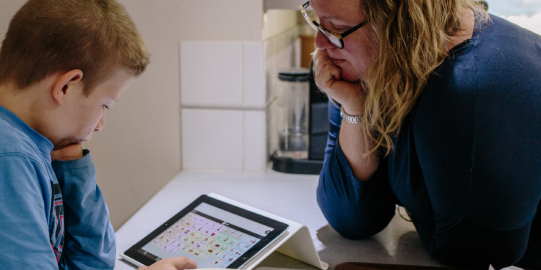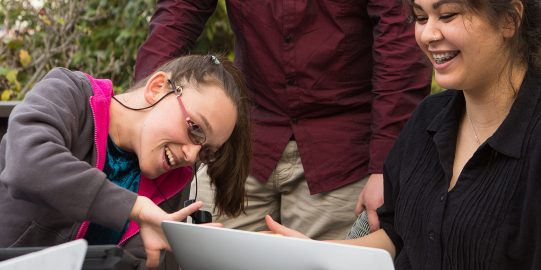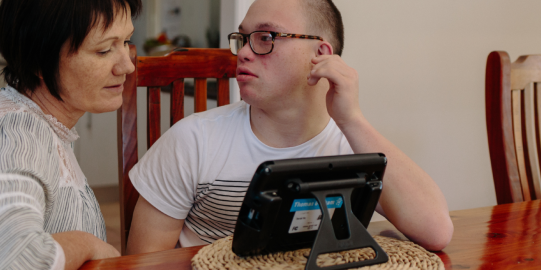(Update - Feb 2023)
Alyssa wrote this blog post before they started working for AssistiveWare. Alyssa joined the AAC Research team in November 2021
Like most adults, I can expect people not to go through my stuff or read my communications with other people. My iPad and laptop are mine. No one touches them without my permission.
My “no touchy” rule might seem impractical for a young person learning to use AAC or for someone of any age who needs help with device maintenance. However, we can teach privacy and autonomy, and that AAC is their private voice. That starts with deciding who does and doesn’t get to touch our devices, and about what those people get to do to our devices. You can and should respect those boundaries.
Think about modeling. Yes, modeling is important! But you can’t assume that you can model on my device. Everyone has their own preferences, based on a number of factors. No, you actually can’t use my laptop to model – I have research data on it that has to stay confidential. So, if you need to model an AAC program on my laptop, you’ll need to get another laptop with the same app. I’ll most likely want you to do the same for my iPad. If you want to teach me my devices and the AAC applications on them are my personal voice, you should always ask before touching it, and then always respect that preference. If anyone can use “my” device without asking, or even if I’ve asked them not to, then it’s not mine at all.
Or consider saved phrases. My “About Me” folder suggests saved phrases for my address, homework and cell phone numbers, town, and email. The “Health Information” and “personal care” folders suggests saved phrases for our doctors or anyone who supports us! Think about how much personal information that would put in the device, and then think again about having people like teachers modeling on (and therefore touching) our devices. That means they have access to our information if we want it in the device. (Not if someone else thinks we should have it – if we want that sort of personal information in our own devices.) I don’t want my teachers to have that information! They aren’t even entitled to know my specific diagnoses, and I might not want them finding out by modeling how to say them. I might not want the person nominally responsible for helping program my device to know them either.
How about reading our message history? Remember, that’s part of typical data collection to figure out if I really need a device, and how well it’s working. They’d get my personal information. And even if I’m not saying anything sensitive, we don’t want our parents knowing everything we said to our teachers, our teachers knowing everything we said to our parents, or either knowing the responses that are in my history if people model on my device. If, for example, I swear at someone, authority figures should ideally only find out if they overheard or someone tells. Not because they have a list of everything I said with my device, and when. Using AAC should not mean having less privacy and autonomy than anyone else.
Heck, even things like volume modulation affect privacy. Device settings that let me be heard throughout the classroom aren’t necessarily letting me whisper to the person next to me. I have text-only AAC options as a partial answer to this, but this won’t work if I’m locked into an app that’s set to speak after every word or after every sentence. We must teach students how they can have the same privacy you do every time you lower your voice.
Without an expectation of privacy, while we learn AAC, we’re learning not to expect privacy (or autonomy, if our requests for privacy are ignored). Is that what you really want to teach us about privacy or autonomy? About who gets a private voice?




